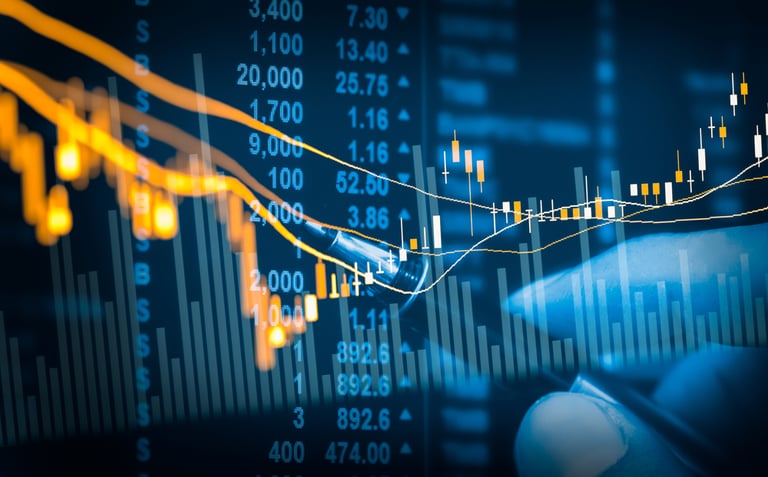
Subscribe to our newsletter
The Impact of Economic Factors on the Fine Wine Market
Navigating Uncertainty
10/5/20233 min read


Introduction
The fine wine market is a captivating and ever-changing world, influenced by various factors, particularly global economic conditions. Economic factors hold significant sway over the fine wine market, affecting production, prices, consumer demand, and investment opportunities. As a fine wine investor, understanding the impact of economic factors is crucial for making informed decisions, mitigating risk, and maximizing returns.
Development
Global economic conditions directly influence the fine wine market. Indicators like GDP growth, inflation rates, interest rates, and currency fluctuations can significantly impact wine production, distribution, and consumer purchasing power. During periods of economic growth and stability, consumer confidence rises, leading to higher demand for luxury goods, including fine wines. Conversely, economic recessions can lead to reduced consumer spending and lower demand for luxury products.
Currency fluctuations also play a crucial role in the fine wine market. As wines are traded globally, changes in exchange rates can affect import and export prices, making certain wines more or less accessible in different markets. For example, a strong local currency can increase the cost of imported wines for consumers, potentially leading to decreased demand. Conversely, a weaker currency can make wines from a particular region more attractive to international buyers, driving up prices and demand.
One economic factor that significantly impacts the fine wine market is the level of disposable income and wealth distribution. Fine wines are often considered luxury goods, and the purchasing power of wealthy individuals and high-net-worth collectors greatly influences market trends. During periods of economic prosperity and growing wealth, the demand for prestigious and rare wines tends to increase, driving up prices. Conversely, economic downturns can lead to a decrease in spending on luxury products, affecting both the demand and prices of fine wines.
It's essential to note that economic factors can vary in different regions and countries. The fine wine market is global, and each market has its unique economic conditions and consumer preferences. For example, economic growth in emerging markets like China and Brazil has contributed to an increase in demand for fine wines in recent years. Understanding the specific economic landscape of different regions can help investors identify emerging opportunities and tailor their investment strategies accordingly.
Navigating uncertainty and mitigating risk in fine wine investments involves several strategies. Firstly, diversification is key. Building a well-balanced portfolio that includes wines from different regions, vintages, and price ranges can help distribute risk and reduce exposure to economic fluctuations in specific markets. Diversification can also involve investing in different asset classes, such as wine funds or portfolios managed by experts.
Secondly, staying informed and conducting thorough research is essential. Keeping up with global economic trends, market reports, and expert analyses can provide valuable insights into market dynamics and potential investment opportunities. Collaborating with wine experts, attending industry events, and networking with other investors can also provide valuable insights and guidance.
Lastly, having a long-term perspective is crucial when investing in fine wines. The fine wine market has historically demonstrated resilience and long-term growth potential. While short-term economic fluctuations can impact market prices, focusing on the underlying quality and reputation of wines can help investors navigate uncertainty and make informed decisions based on long-term appreciation potential.
Conclusion
In conclusion, economic factors hold significant influence over the fine wine market. Understanding the impact of global economic conditions, currency fluctuations, and wealth distribution is crucial for investors in fine wines. By diversifying portfolios, staying informed, and adopting a long-term perspective, investors can navigate uncertainty, mitigate risk, and make informed decisions that maximize their potential returns in the dynamic world of fine wine investments. Cheers to the exciting journey of investing in fine wines and embracing the ever-evolving world of the wine economy!
Subscribe to our WineLux newsletter to receive exclusive content, industry trends, and expert tips. Join our community of wine enthusiasts and stay up to date with the latest developments in the fine wine industry! " 🍇🏦
